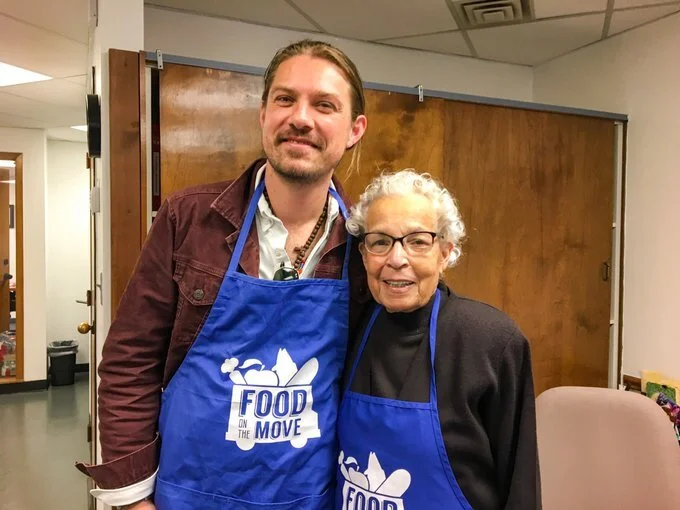We think of food when we think of giving thanks. When we sit down for a meal, it often triggers thoughts of thankfulness.
Thanksgiving is the pinnacle of giving thanks for more than a single meal. Thanksgiving is more than a day to enjoy food with loved ones. At its heart, it is the “gateway holiday” that starts a whole season of reflection leading up to New Year’s Day — a time for us to take stock and declare who we are and what is important to us.
Through our self-assessment, we initially examine everything through a lens of our individuality. However, should this Thanksgiving tradition, which leads to reflection on what we are grateful for, go beyond our individuality?
Can it encompass more than those who sit around our table? Does it cross boundaries of ethnicity, religion and culture? Is it more than an American holiday, but rather a universal practice?
I believe the answer to the above questions is yes. Thanksgiving breaks the barriers of property lines, political parties and our unconscious bias, removing all boundaries.
The last few years have taught us several lessons we can’t ignore. Thankfulness, in its most basic form, is something collective, something we celebrate as a community, as a city, and as something that brings dignity to our diversity. I believe we live in a city that embraces these truths and offers hope, a spirit of cooperation, and is an example for the nation of what a strong city looks like.
I call it TulsaStrong!
Case in point — a little over a year ago, the announcement was made that Tulsa would receive 800 Afghan refugees. As Catholic Charities, under the leadership of Deacon Kevin Sartorius, led the way, several organizations joined to serve our city and our new neighbors.
Food On The Move, a nonprofit I have the honor to lead, was called to action to oversee the food distribution for our new Tulsans. Several other organizations also stepped up to focus on housing, jobs, education and other areas to help our new neighbors with their transition to Tulsa.
Food On The Move designed a program to provide three meals a day, plus other essentials, to our new neighbors while they lived in local hotels awaiting permanent housing. In an effort to ensure that these new Tulsans were welcomed with the spirit of Oklahoma, we called the program Operation Welcome Home.
For 204 consecutive days, we delivered meals, prepared by Jeff Marlow and his team at the Community Food Bank of Eastern Oklahoma, to our new neighbors. As we called for volunteers to help us serve, we were met with incredible support — from foundations, for-profits, not-for-profits, houses of worship from every religion, and Tulsans from every ethnic background — joining forces and putting all differences aside to serve individuals who had suffered in ways we couldn’t imagine.
We were one heart, one mind and one voice. We were One City telling these new Tulsans they are welcomed and wanted.
Located in the middle of a nation in political turmoil, Tulsa led the way with love, thankfulness and compassion. So much so, a meeting was held at Catholic Charities with a Biden administration representative inquiring about why things in Tulsa were effective and asking how to replicate our model in other cities.
The answer is simple. We are a city of people thankful for the life we have. A heart of thankfulness was the driving force to embrace people who had lost everything and were forced to start over in a city they had never heard of.
In that moment, and several other moments the last few years, I witnessed Tulsans stand strong because of the compassion of the amazing citizens who call our city home. Our actions speak volumes about who we are. We are more than our political affiliations, our companies, our houses of worship or our heritage. We are a city of thankful people.
We are TulsaStrong!







